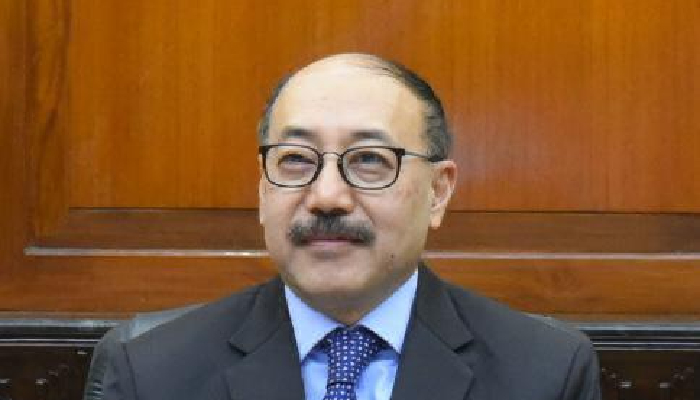Last year, Chinese attempts to unilaterally alter the status quo in Ladakh seriously disturbed peace, tranquility in the border areas
Referring to recent geopolitical challenges in India’s immediate neighbourhood, Foreign Secretary Harsh Vardhan Shringla on Monday said New Delhi has made it clear to the Chinese side that peace and tranquility in border areas is essential for development of India-China relationship.
“Chinese attempts over the last year to unilaterally alter the status quo in Ladakh have seriously disturbed peace and tranquility in the border areas. These acts are in violation of our bilateral agreements and have inevitably impacted other aspects of the bilateral relationship,” the Foreign Secretary said in his remarks on ‘India’s Foreign Policy and its Strategic Imperative: The Way Forward’ at the 6th JP Morgan “India Investor Summit.”
He said development of India-China relationship can only be based on three Mutuals: Mutual respect, Mutual sensitivity and Mutual interests.
The Foreign Secretary said an essential basis for the largely positive trajectory of India-China relations during the last 40 years has been the agreement between the two countries to ensure peace and tranquility in the border areas.
With regard to Afghanistan, he said as an immediate neighbour, India is concerned about the recent changes in Afghanistan and their implications on the country and the region.
The Foreign Secretary said during its Presidency of the UNSC in August 2021, the Security Council met three times to discuss the situation in Afghanistan.
“At the last of these meetings, the Council adopted UNSC Resolution 2593, which comprehensively addressed the main pending issues relating to Afghanistan,” he said
The resolution demands that Afghan territory not be used for sheltering, training, planning or financing terrorist acts; and specifically refers to terrorist individuals proscribed by the UN Security Council, including the Lashkar-e-Tayyiba and Jaish-e-Mohammad.
The Foreign Secretary informed that India is also monitoring developments related to the humanitarian needs of Afghanistan.
In UNDP’s assessment, there is an imminent threat of poverty levels rising in Afghanistan, he said.
There is also a threat of an imminent drought and a food security crisis, Shringla informed.
He maintained that it is important for the humanitarian assistance providers to be given unrestricted and direct access to Afghanistan.
The Indian top diplomat said it is also important that the distribution of humanitarian assistance be done in a non-discriminatory manner to all sections of the Afghan society.
Highlighting that India’s approach to Afghanistan has been guided by its civilizational relationship with the Afghan people, he said India has extended over USD 3 billion as development assistance for the welfare of the people of Afghanistan.
India has undertaken over 500 developmental projects spread across all 34 provinces of Afghanistan. These initiatives have earned India tremendous goodwill in the country, Shringla maintained.
He stated that India’s friendship with the Afghan people will continue to guide its approach in the future.
 Contact Us
Contact Us  Subscribe Us
Subscribe Us









 Contact Us
Contact Us
 Subscribe
Subscribe
 News Letter
News Letter

